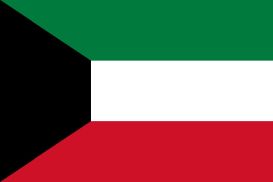
Author(s): Central Statistical Bureau
Resource Type: Case studies
Countries: Kuwait
SDG: GOAL 16. Peace and Justice Strong Institutions
Keywords: Open Data, Collaboration, Transparency
Statistics and information
Kuwait Central Statistical Bureau
Source in Arabic: ESCWA-OECD Case Study - Statistics and Information, Kuwait
The Central Statistical Bureau provides accurate statistical data and information in a timely manner, including population, social, economic, commercial, agricultural, and services statistics. This initiative contributes to supporting the development and planning process, and decision-makers. In its work, the Bureau relies on advanced international systems and standards and on forming a professional team, as well as on partnering with various stakeholders, to ensure efficiency and building a knowledge society.
Implementation: Since 1963
Contributor(s)
Central Statistical Bureau in cooperation with several partners at the regional and international levels.
Purpose
The work of the Bureau is aimed at disseminating statistical culture and data in an accurate way and through an integrated national statistical system that contributes to meeting the needs of users, and providing the information needed for planning, formulating policies, and development. The Bureau also seeks to develop business relationships and partnerships at the regional and international levels, and to strengthen the channels of dialogue between producers and users of data.
Functions
The Central Statistical Bureau’s work is regulated by Law No. 27 of 1963 on Statistics and Census, and includes collecting data through periodic censuses and surveys, including population, housing and establishments censuses, in addition to income, workforce, household spending and foreign investment surveys obtained from data providers. The Bureau works within an institutional framework that follows international statistical systems and standards, and continuously seeks enhancing its support to decision-makers. Furthermore, it strives to develop its statistical analysis capabilities, publishing of data and relevant indicators, provide appropriate training for employees, and further automate the data collection process. The Bureau’s activities also include harmonizing between statistical methodologies and standards across all statistical units in ministries and government agencies.
Clients
The activities of the Bureau benefit all users of statistical information and data, including decision-makers, researchers and students, as well as the General Secretariat of the Supreme Council for Planning and Development, governmental and non-governmental bodies and organizations, and all social groups concerned in the economic, commercial and service fields.
Outcome
- The Bureau became the unified and comprehensive national source of data and statistics.
- The statistics provided by the Bureau are relied on for formulating policies that contribute to development and improving the lives of citizens.
- Increase in the number of users and beneficiaries of the available data and statistics.
Challenges
- Providing sufficient expertise to meet national needs.
- The use of international expertise.
- Statistical Marketing.
- Continuing to facilitate cooperation between the Bureau and users of statistical data.